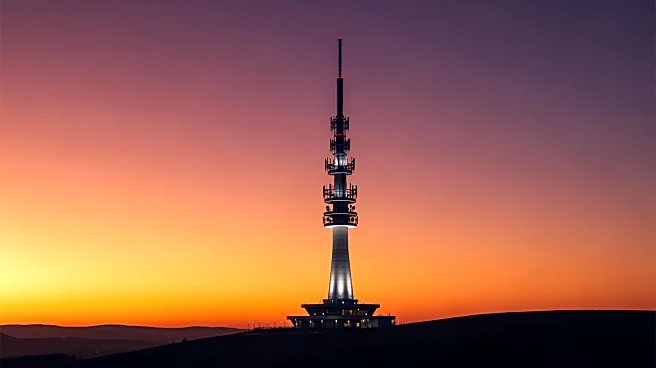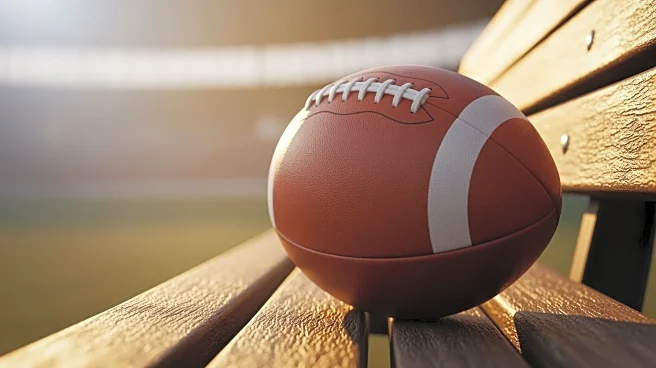Rapid Read • 9 min read
President Trump has issued an executive order directing his Cabinet to develop a plan within 30 days to preserve college sports opportunities and prevent college athletes from becoming professionals. The order outlines guidelines for maintaining athletic scholarships based on an athletic department's annual revenue and prohibits athletes from accepting 'third-party, pay-for-play payments.' The NCAA has historically banned such payments, but recent legal challenges and state laws have pressured the association to allow schools to pay athletes through endorsement contracts, which often act as de facto salaries. The order also mandates that athletic departments with revenues exceeding $125 million must increase scholarships for non-revenue sports, while those with at least $50 million cannot reduce scholarships.
AD
The executive order aims to address the evolving landscape of college sports, where athletes are increasingly seen as professionals due to financial incentives. This move could impact the balance between revenue-generating and non-revenue sports, potentially affecting funding and opportunities for athletes in less popular sports. The NCAA and college sports leaders have sought federal intervention to maintain competitive balance, fearing that treating athletes as employees could lead to financial strain on schools. The order's implications could influence ongoing debates about athlete compensation and employment status, affecting the future of college sports and the financial dynamics within athletic departments.
The executive order calls for the Secretary of Labor and the National Labor Relations Board to clarify college athletes' employment status, although no specific timeline is provided. The NCAA is seeking antitrust exemptions from Congress to enforce rules limiting athlete earnings, with a bill currently under consideration in the House of Representatives. The outcome of this legislative effort could significantly impact the NCAA's ability to regulate athlete compensation. Additionally, ongoing legal cases, such as Johnson v. NCAA, continue to challenge the employment status of college athletes, potentially leading to further changes in how athletes are compensated and treated within the collegiate system.
The executive order raises ethical and legal questions about the treatment of college athletes and the definition of amateurism in sports. The potential classification of athletes as employees could lead to unionization and collective bargaining, fundamentally altering the relationship between athletes and institutions. This shift could also impact the cultural perception of college sports, as the traditional model of amateurism is increasingly challenged by financial realities. The broader implications of these changes may influence public policy and societal views on the role of sports in education and the rights of student-athletes.
AD
More Stories You Might Enjoy











